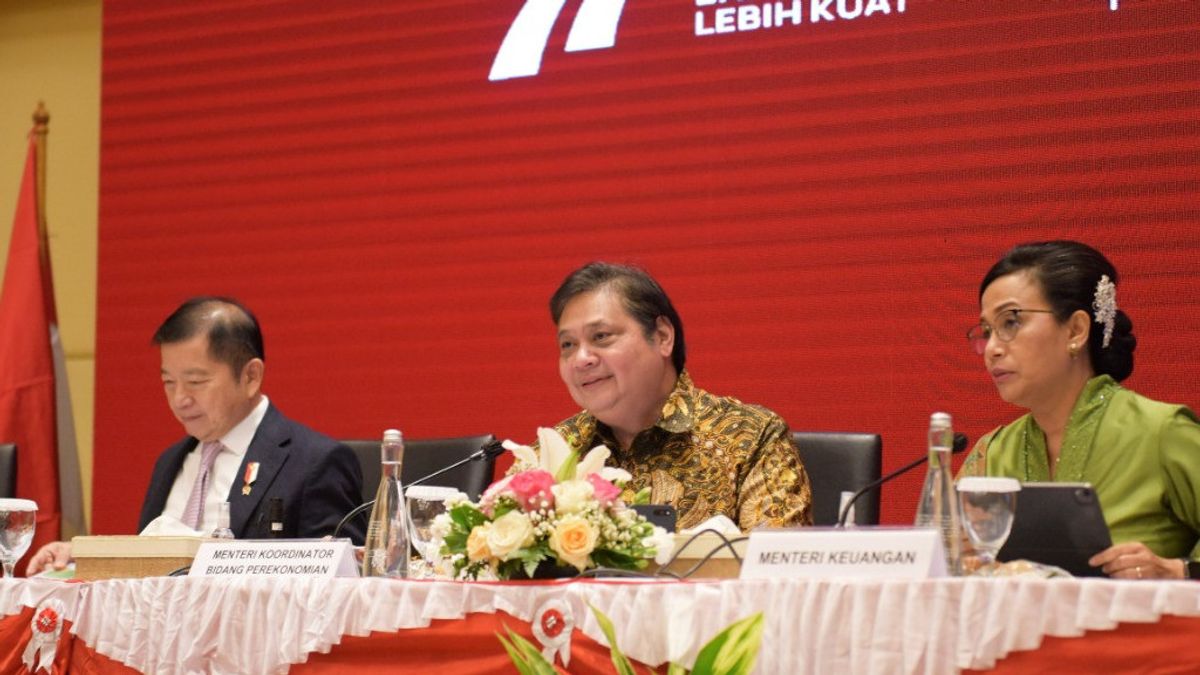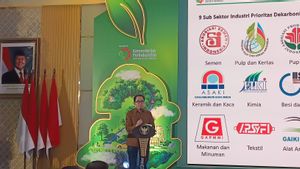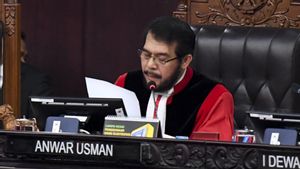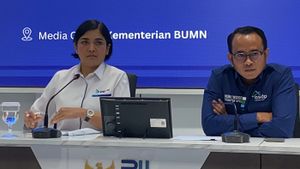JAKARTA - In the midst of various turbulent global challenges, the Indonesian economy is able to remain strong and can grow impressively compared to a number of other countries.
The economic growth rate which reached 5.44 percent in the second quarter of 2022 adds to the positive record of Indonesia's economic growth which has grown above 5 percent for three consecutive quarters.
This achievement of economic growth is also inseparable from Indonesia's success in controlling the COVID-19 pandemic.
Coordinating Minister for Economic Affairs Airlangga Hartarto in a Press Conference on the Financial Note and the 2023 State Budget Bill in Jakarta, Tuesday, August 16, said that the economic growth was supported by the increasing consumption and export sectors.
In addition, the General Chair of the Golkar Party also said that the impressive economic growth was also supported by other sectors that grew positively, namely the industrial, processing, trade, mining, and agriculture sectors. Downstreaming for policies in the automotive sector has also proven to be one of the drivers or drivers of the manufacturing sector.
The Consumer Confidence Index was also at an optimistic level in July 2022, namely 123.2 and retail sales continued to grow in July 2022 and reached 8.7 percent. The prospect of demand also continues to increase as reflected in the Purchasing Manager Index (PMI) which continues to be at an expansion level of 51.3 in July 2022.
"The quality of the economy has also improved because the poverty rate has decreased, as well as the unemployment rate has also decreased," said Coordinating Minister Airlangga.
Regarding price stabilization and inflation, Coordinating Minister Airlangga said that the Central and Regional Inflation Control Teams continue to encourage policy programs related to price affordability, supply availability, smooth distribution, and also communicate effectively with the public. Thus, the challenges of hyperinflation this year can be handled, as well as next year.
Furthermore, Coordinating Minister Airlangga said that the Government continued to encourage MSMEs, one of which was through the People's Business Credit (KUR), whose realization until July 2022 was relatively good, reaching 56 percent of the target.
Meanwhile, the total outstanding KUR from August 2015 to July 31, 2022 was IDR 530 trillion, which was given to 36.56 million debtors with a low NPL of 1.03 percent.
"The President also said that one thing that can be relied on in the future is structural reform," said Coordinating Minister Airlangga.
Accelerating the implementation of structural reforms, including the implementation of the Sovereign Wealth Fund, can be an alternative to financing economic development.
The government also continues infrastructure development, which from 2016 to June 2022 there have been 135 National Strategic Projects (PSN) with an investment value of IDR 858 trillion.
On this occasion, Coordinating Minister Airlangga also conveyed related to the food sector and the energy sector which are currently a global challenge. In terms of food security, President Joko Widodo said that the award received by Indonesia from the International Rice Research Institute gave confidence that the handling of the food security system and agricultural system in Indonesia continued to improve.
From the energy sector, Coordinating Minister Airlangga said that the Government had prepared a budget for subsidies and compensation for energy amounting to Rp502.4 trillion.
"The government is conducting a review related to the needs resulting from the increase in fuel prices both in terms of volume and in terms of subsequent policies. From these studies the Government takes into account the potential for rising inflation and is also related to the effect on GDP going forward," continued Coordinating Minister Airlangga.
Regarding the Draft State Budget, State Expenditures in the 2023 RAPBN are planned at Rp. 3,041.7 trillion, which includes Central Government expenditures of Rp. 2,230.0 trillion, and Transfers to the Regions of Rp. 811.7 trillion.
In 2023, the APBN is intended to support increased productivity while optimizing the function of the shock absorber in maintaining the momentum of economic recovery and anticipating the risk of uncertainty. In addition, it is also encouraged to increase productivity for an inclusive and sustainable economic transformation.
Regarding social protection, the social protection budget is allocated Rp479.1 trillion to help the poor and vulnerable meet their basic needs, and in the long term is expected to be able to cut the chain of poverty.
In line with this, social protection program reforms are directed at improving the recipient database through the development of Social Economic Registration (Regsosek) data, improving lifelong and adaptive social protection, targeted and targeted beneficiary-based subsidies, and accelerating the elimination of extreme poverty.
The English, Chinese, Japanese, Arabic, and French versions are automatically generated by the AI. So there may still be inaccuracies in translating, please always see Indonesian as our main language. (system supported by DigitalSiber.id)













